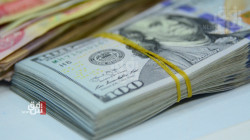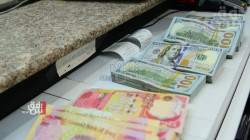Expert says CBI should stop acting like a forex speculator

Shafaq News/ An Iraqi economic expert on Saturday said that the Central Bank of Iraq (CBI) should stop selling dollars in exchange for the national currency, suggesting leaving this matter to the "black market" in a bid to achieve market stability.
"There are two main reasons behind the abrupt increase in the dollar exchange rate," Dana Mawloud told Shafaq News Agency, "First, it was the CBI announcement that it would halt the injection of dollars into the market starting from the beginning of the coming year. Media sensationalism has played a role also, affecting the decisions of citizens to hoard dollars instead of the local currency."
On the reasons behind the Central Bank of Iraq's decision to stop injecting currency in 2024, he added, "The Central Bank of Iraq, in coordination with the International Monetary Fund, has made this decision with the approval of the US Treasury. It will be implemented starting from January 1st next year to prevent the US dollar from reaching Iran and Turkey from Iraqi markets, as those two countries are the largest purchasers of US dollars from Iraqi markets."
"The Central Bank is the sole entity selling foreign currency in the markets and acts as the exchange office. There is no bank or financial institution in the world that operates by selling its reserves of foreign currencies."
"The issue should be left to the black market, and the central bank and other banks can exchange foreign currencies at the government-set rate," he explained, "this way, the exchange rate of the dollar would stabilize between the government-set rate and not exceed 137,000 dinars per 100 dollars."
He also pointed out that "the reasons for currency smuggling stem from the fact that the dollars injected by the Central Bank of Iraq do not go to the citizens but to banks and companies that do not benefit the Iraqi citizens."
Today, the exchange rate of the US dollar against the Iraqi dinar closed at 158,500 dinars to in the Sulaymaniyah stock exchange.





